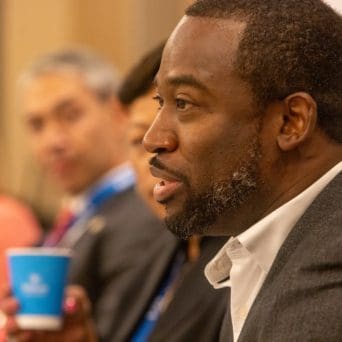Early childhood education has recently made headlines with the Biden administration’s proposal to spend $200 billion to expand pre-K access to all 3- and 4-year-olds as part of the American Families Plan. This investment, according to the administration, could benefit 5 million children and save families an average of $13,000 annually.
The administration’s proposal builds on momentum generated by cities and states across America. In CityHealth’s 2020 policy assessment, 33 of 40 cities received a policy medal for their high-quality, accessible pre-K programs based on criteria developed in partnership with the National Institute for Early Education Research (NIEER) at Rutgers University.
The rationale for pre-K is straightforward. An overwhelming body of evidence shows that high-quality pre-K programs better prepare children for entering school and improve their chances of success. Children in pre-K are also more likely to see a doctor, receive appropriate immunizations, and get dental care.
These immediate benefits translate to positive long-term outcomes that include cognitive and social emotional gains, higher lifetime earnings, and improved health in adulthood. There’s also a compelling economic argument that pre-K investments are dollars well spent. A leading economist found that every dollar invested in pre-K can result in a $7 to $10 return.
While national pre-K proposals face an uncertain and a politically charged future, cities can take action today to expand access and improve the quality of pre-K in their communities. Two new tools from CityHealth and NIEER can help cities finance their pre-K programs and identify areas to improve their quality and make them more equitable.
City Pre-K Funding Strategies
The first tool addresses a top concern of city leaders considering implementing a pre-K program: how to pay for it. CityHealth and NIEER identify 11 funding strategies used by cities and counties to finance their local pre-K programs to show policymakers the range of financing options available. Some of the ways cities have raised funds include voter-approved taxes, mechanisms to utilize the school funding formula, and requiring the use of blended funds to support early learning.
One example is in Denver, where voters approved a sales tax in 2006 to fund tuition credits that parents can use to enroll their children in pre-K programs. Elsa Holguín, president and CEO of the Denver Preschool Program (DPP), said that the results speak for themselves: The funding led to more quality programs with better outcomes for students.
“Over 80% of DPP providers had a high-quality rating in Colorado’s QRIS in April 2021, as compared to just 30% of providers statewide. DPP’s evaluation shows that in kindergarten, DPP-participants meet reading standards, miss fewer school days and are less likely to repeat a year,” Holguín told CityHealth. QRIS refers to the quality rating and improvement system.
Pre-K Self-Assessment Framework
Equally important is ensuring the quality of a city’s pre-K program. In 2019, with the support of the Robert Wood Johnson Foundation, CityHealth convened a group of early education leaders to form the “Pre-K Learning Network” to help cities improve their early education programs and inspire more cities to provide high-quality, accessible pre-K.
Through the expertise of the learning network, NIEER developed a self-assessment framework that translates evidence and best practices into tools to assess and provide actionable steps to improve the implementation of early learning programs.
Ideally, the framework should be completed by a team that includes a broad group of community stakeholders that hold different perceptions, roles, and understandings of a local pre-K program. The process of completing the framework, or even the individual components, can be used as an organizing tool and can facilitate conversations that inform community-wide strategic plans, campaigns, and legislation for improving the pre-K program.
Central to the framework is the incorporation of equity principles throughout the components. The framework features an “equity index” of indicators that address racial and ethnic inequities and is designed to accommodate the variety of equity approaches that cities use. There are also standalone components to ensure equity for children with special needs and children who speak a language other than English.
These two tools build on CityHealth’s work to help every person, in every city, live their healthiest possible lives and NIEER’s expertise in translating research into policy. We encourage city pre-K leaders to consider the range of funding strategies to expand their pre-K programs and to improve their quality by completing the self-assessment framework. The benefits are clear: High-quality, accessible pre-K helps children live longer, better lives in vibrant, prosperous communities.





